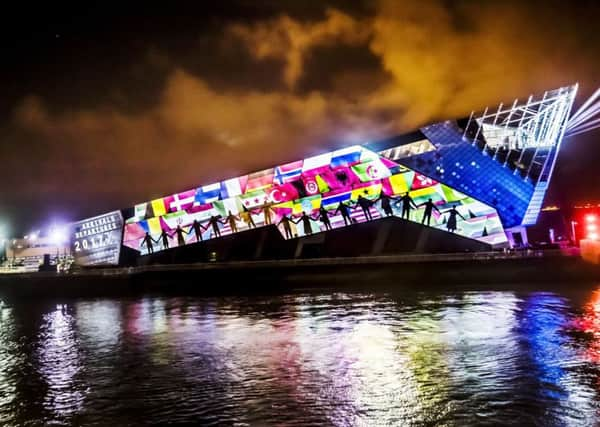Diana Johnson: Chris Grayling is doing down the North as transport stalls


Many 2016 Leave voters may ask whether promises made on NHS spending, workplace rights and much else look like being kept. Are we ‘taking back control’ of immigration? If so, is sufficient work being done to cope with the consequences for our economy and public services?
Much attention at Westminster focuses on what economists call ‘supply-side micro-economic’ issues, such as education, skills and infrastructure, where the onus is on this country being ready for opportunities that we hope will arrive. However, is it now inevitable that those opportunities will appear? The post-1945 assumption that future generations can expect a better standard of living than their parents looks doubtful.
Advertisement
Hide AdAdvertisement
Hide AdWe need to make our own luck. Hull people have been doing this, winning the UK City of Culture and attracting Siemens to the City. Now we seek a legacy from Hull 2017 and an export market in continental Europe for our wind energy industry. For all we have achieved in recent years, against the backdrop of some of the heaviest Government cuts, Hull’s regeneration is still in its infancy. Progress can easily be rolled back.
The fundamental economic challenge facing the country is to escape the vicious circle of austerity and create the broad-based, resilient economy that generates the sustained growth needed to reduce debt and meet our basic needs from defending the nation to building sufficient homes.
There are questions about whether our country is forging the global alliances needed after Brexit, about what we will manufacture and sell in future and how much reliance we should place on the service sector.
Linked to all this is the challenge of improving productivity. That’s why addressing the North’s needs is so vital.
Advertisement
Hide AdAdvertisement
Hide AdWhen will the Government get real about allowing the North to take pressure off the congested South-East, thus boosting overall UK growth? To assist this, when will the so-called ‘Northern Powerhouse’ get a fairer share of transport infrastructure investment than the £13bn allocated to our creaking transport network in this Parliament?
Northern taxpayers and fare-payers are absorbing the biggest above-inflation rail fare increases for many years. For what?
IPPR North’s latest figures show London set to get five times the investment per head of Yorkshire and the Humber over the next four years.
In attacking IPPR North, Transport Secretary Chris Grayling (The Yorkshire Post, January 25) portrays a North getting the most generous state investment in rail and roads and in “the most environmentally responsible technology”, stressing Transport for London projects that “receive no central government funding”. This only highlights the effort also being put into securing large-scale private investment for London and the South-East – effort not made for the North.
Advertisement
Hide AdAdvertisement
Hide AdHull saw the privately funded Hull to Selby rail electrification blocked by Tory Ministers. Local bus services are cut. Our cars bear the brunt of the potholes backlog and we still await the A63 upgrade. We treat Grayling’s boasts with scepticism and his promises with caution.
After Grayling told the North to ‘get in the driving seat’, we know that Transport for the North’s advisory powers are inadequate, compared to those of Transport for London. Beyond phasing out Pacer trains, do aspirations to improve the Northern transport network by 2050 meet the country’s needs?
Chris Grayling’s reappointment as Transport Secretary does not inspire much confidence that these questions will be faced or that we will see any Government rethink that grasps the reality that the North’s revival is central to the future prosperity of our nation as a whole.
For example, Grayling recently committed to moving forward with HS2, Northern Powerhouse Rail and Crossrail 2 “in lockstep”. Is there the capacity in our rail industry to achieve all this at once? Wouldn’t priorities have to be set? Is it that Grayling simply doesn’t want to tell us what his real priorities would be?
Advertisement
Hide AdAdvertisement
Hide AdThe fact that London’s Crossrail 2 is so much further advanced than any of Transport for the North’s plans is a strong indicator of what to expect.
I will continue banging the drum for the North at Westminster and The Yorkshire Post will continue scrutinising the issue of fairness. As London’s Crossrail network starts opening during 2018, I hope that our regional broadcasters show on the North’s television screens the true scale of investment in London.
Grayling claims that those who highlight the unfair funding issue are “talking down the North”. He would be better advised to stop doing down the North.
It’s time to ask not what the country can do for the North, but what the North can do for the country.
Diana Johnson is MP for Hull North.